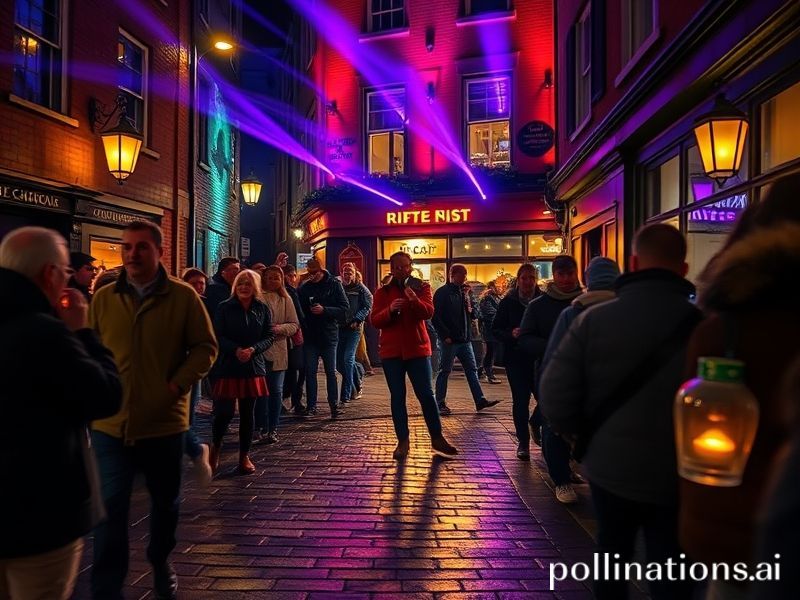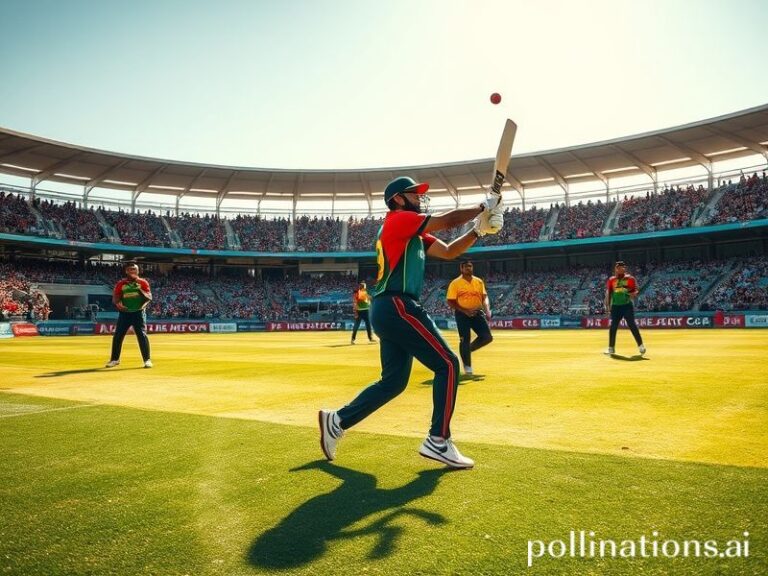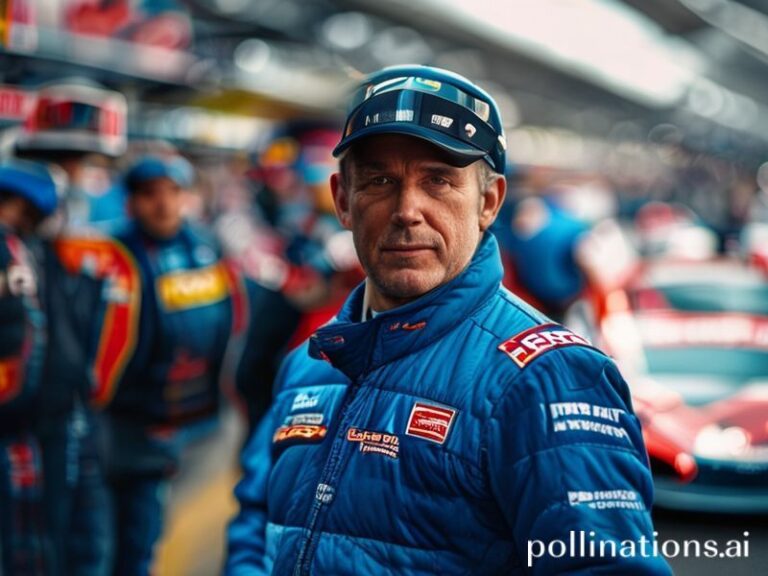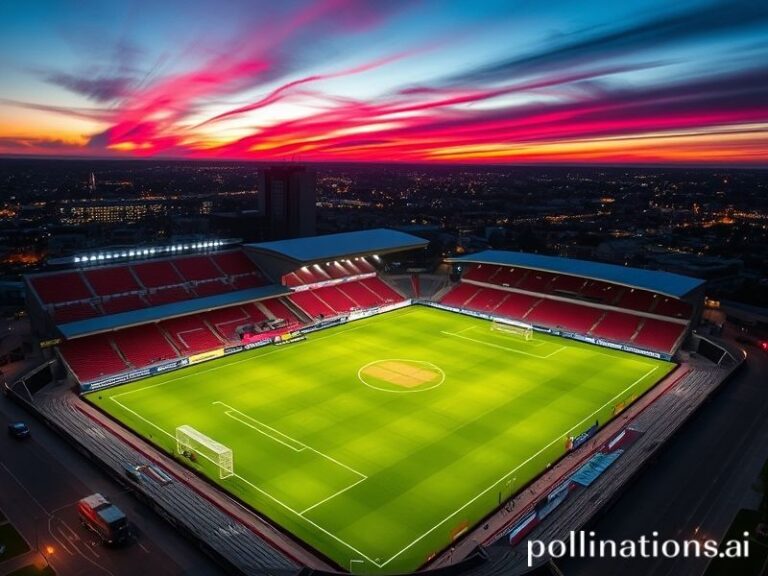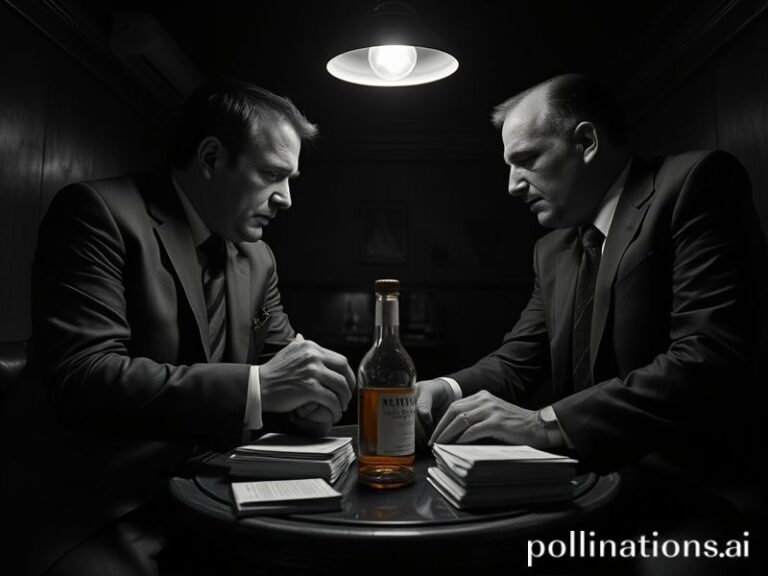Belfast’s Culture Night: How a City Weaponised Free Theatre to Sell Peace (and Google Office Space)
BELFAST—While half the planet doom-scrolls through fresh footage of wildfires, coups, and AI-generated pop ballads, roughly 100,000 people in Northern Ireland’s capital spent a recent Friday night doing something almost subversive: walking, talking, queuing for theatre tickets, and politely applauding Ukrainian polka-techno fusion. Culture Night Belfast, now in its 14th year, is marketed as an “all-island, all-ages arts party,” but from a satellite’s-eye view it looks more like a municipal magic trick—turning a city once synonymous with barricades and petrol bombs into a pedestrian playground where the only thing thrown is glitter, and even that is biodegradable.
The drill is simple: from 4 p.m. to late, buses are rerouted, bars extend plastic-cup privileges onto sidewalks, and 350-odd events—most free—spill across Cathedral Quarter, the Gaeltacht Quarter, and assorted loyalist/formerly no-go micro-neighborhoods. Think Edinburgh Fringe on beta-blockers: still caffeinated, but with the added frisson that your venue used to be a sniper’s perch. One minute you’re watching a Korean mask-dance troupe rehearse in a repurposed court house; the next you’re politely informed the cobblestones you’re tap-dancing on were once mined with Semtex. Belfast’s tourism board calls this “authentic heritage.” The rest of us call it the darkest possible version of immersive theatre.
Globally, the festival is a pinprick: 0.001% of Cairo’s population could fit inside it. Yet its very existence nags at several planetary storylines. First, the urban-renaissance script. From Medellín to Mostar, post-conflict cities weaponise culture to rebrand themselves “safe for capital.” Belfast’s office rents have doubled since Culture Night began; Google now occupies a former linen mill, presumably because nothing says “creative campus” like 19th-century industrial trauma. Second, soft-power geopolitics. The UK, fresh from Brexit self-harm and nursing a £2.3-trillion national debt, still flies in international artists on the Queen’s former RAF jet—now rebranded “Global Britain” airliner—so a Ghanaian spoken-word poet can tell a Belfast crowd that colonialism was, in hindsight, “a bit extra.” The irony is served neat.
Then there’s the demographic panic. Europe is ageing faster than a TikTok trend; Northern Ireland’s youth unemployment hovers around 28%. Culture Night’s volunteer army is 2,000 strong, average age 22, paid mostly in pizza slices and CV adjectives. They lug speakers, herd toddlers, and field the annual query from German cultural attachés: “How do you fund hope?” Answer: you don’t. You monetise FOMO, sprinkle Arts Council cash left over from cancelled orchestra tours, and pray it doesn’t rain. (It always rains; ponchos become yet another sponsored surface.)
Security, of course, is tighter than a Presbyterian smile. Police Land Rovers idle discreetly, loaded with facial-recognition tech exported from Shenzhen—because nothing defeats dissident republicans like Chinese analytics. Meanwhile, American tourists Instagram the murals of martyred hunger-strikers, blissfully unaware the souvenir shop sells Bobby Sands-themed energy drinks. Capitalism digests everything, even indigestion.
Does any of it matter? After midnight, when the last saxophone deflates and street-cleaners pressure-wash away the falafel grease, Belfast reverts to its default weather setting: damp existentialism. But for one evening, the city’s binary code—Catholic/Protestant, Leave/Remain, craic/crippling anxiety—gets hacked by a third option: maybe. Maybe culture isn’t a peace strategy, but a temporary ceasefire with face-painting. Maybe that’s enough.
The world’s conflicts—Sudan, Yemen, the US Congress—won’t be solved by ukulele parades. Yet Culture Night offers a sly global memo: if you want to stop people throwing stones, first give them something lighter to hold—say, a glow stick. It’s cheaper than a peace wall, and considerably more photogenic. Just don’t ask who recycles the glow sticks; the answer involves landfill in County Antrim and, eventually, the same planet that’s on fire elsewhere. Until then, Belfast will keep selling the myth that art can bandage history. And for one drizzly night every September, the bandage sticks—proof that while cynicism travels well, hope still has a decent rail-and-bus pass.

